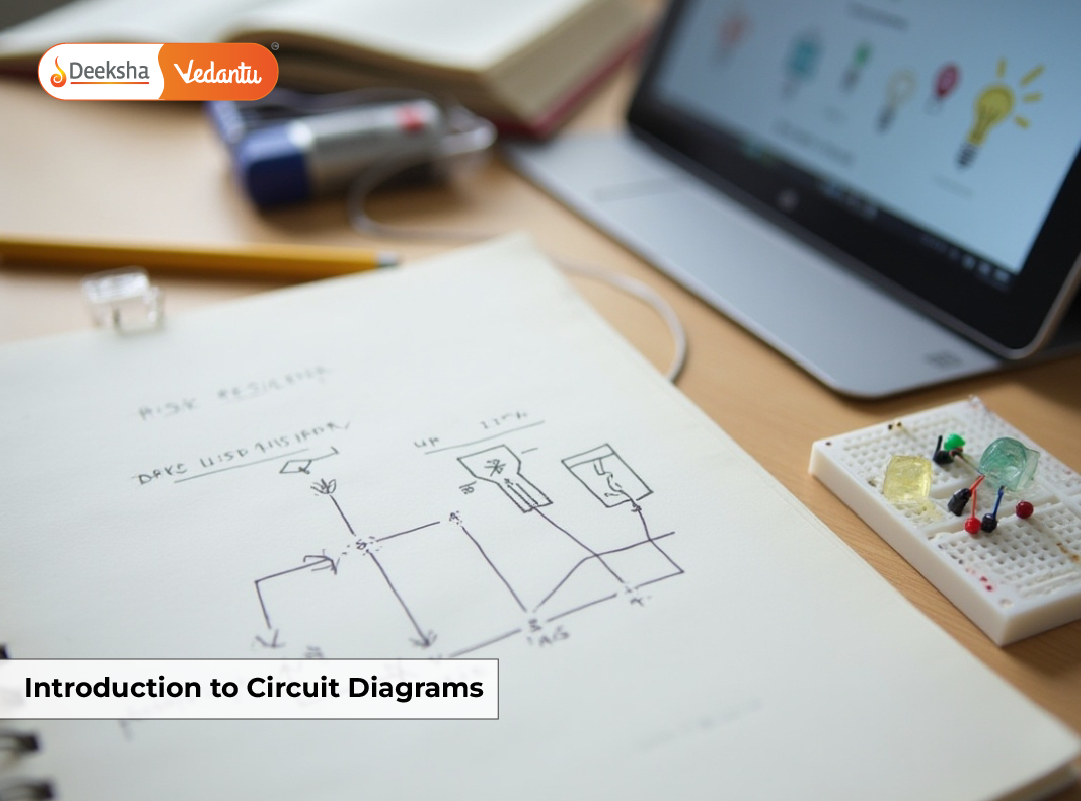1. Plan the Entire Annual Calendar
Attend Classes
Maximum marks in FA 1 will be a piece of cake for those students who attend sessions regularly. Good grades in FA 1 are a stepping stone to good grades on the board exam. As a result, students must attend every lesson without missing any. Missing a class should be a relatively rare event, and skipping more classes will interfere with learning and negatively impact your performance and grade.
Revising Topics Frequently
You may be a good listener or student in the class. However, if you revise the everyday topics given in the classroom, you will stay within your target score.
Have Your Own Learning Space
Studying will be easier and more effective in an environment that promotes growth and production. Create a comfortable environment where you can concentrate on your studies, limit distractions, and use valuable tools to help you keep organised and on track.
Use Resources
If you ask your seniors for recommendations and inquire about how they aced their examinations, they would likely mention NCERT solutions and materials. Do not overburden yourself with guidebooks; having only one standard guide is more than enough.
Study in Groups
Studying in groups gives a different kind of motivation and brings out the competitive spirit in the students. But the point to note is not to let other distractions hinder your plan to ruin the study plan of the entire group. Hence, all group students must be focused during group studies.
2. Find Ways to Compensate for the Time You’ll Be Losing
Allocate Your Fixed Time in a Week
Many things may happen during the year, including weddings, parties, housework, or other additional responsibilities. You should allocate a particular number of hours a week to your studies. This may be at any time in the week; it may be early morning or evening hours, or if you find some time during your free hours at school. It would help you to be mentally prepared to allocate fixed time to your studies.
Reduce Your Distractions and Time on Social Media
Spending more time on social media creates an imbalance in your mental health. It becomes addictive most of the time, and you may lose concentration, leaving you unprepared for your examination. Hence, it is always advisable to reduce the time you spend on social media.
Be Prepared Ahead of Your Examinations
Do not put yourself in trouble by preparing everything at the last moment and thus causing anxiety. Always prepare days before your test and only revise the day before. That way, you will be prepared even if you waste time due to unforeseen situations.
Keep a Buffer in Your Schedule
When you start preparing your study schedule, do not put unrealistic plans on paper or keep it so tight that you cannot relax. Always realistically prepare the schedule, keeping a little buffer for unforeseen situations.
Try to Study Early in the Morning When You Miss Your Study Schedule
When you miss your study schedule, try to compensate by putting in a little extra effort the next day to catch up on your regular schedule and avoid revising the entire plan.
3. Plan Your Exam Schedule
- Planning and execution are important steps. Students create many plans to study for the examinations, but looking at the time graph, they feel they have a lot of time to prepare and end up in last-minute rushes. Hence, it is essential for you to always be ahead and plan your study schedule. Once again, you need more than just planning your study schedule a hundred times to help you achieve your goals. Hence, execution is the only thing that makes it possible.
- Start slowly and steadily. While planning your exam schedule, remember to start with easy topics and a few hours in a day and not overburden your day with many topics. Doing this might make you feel discouraged when you do not meet your target. Hence, starting with easy topics is important; as you get hands-on, you can prepare thoroughly.
- Studying the day before an exam does not help you score good grades. You must revise thoroughly to recall everything during your exam. Test yourself on your own at frequent intervals and assess yourself.
- When preparing a study plan, always ask your senior’s about their point of view on the planning schedule. With this, you will get good insights into how you should plan your studies.
4. Make Sure Your Notes are Updated
Keep Your Notes Handy
- Even though you may have all the right question banks and ready-made resources, you must maintain handwritten notes, focusing on your weak areas and marking important areas in the chapter. This is going to be a lifesaver the day before your exam.
- You may not have a hundred percent attendance at your school, which may be due to your health or personal reasons. Always keep your notes updated once you are back, and have no excuses for yourself. This will help you stay updated even if you did not attend any particular class.
- Sometimes, even if you are attentive in class, you may miss out on important points for your exams. So once in a while, make sure to check whether your notes are updated adequately with your classmates.
5. Give Importance to Your Extracurricular Activities
Playing Outdoor Games Instead of Playing Video Games on Phones
In this smartphone era, students need to focus on playing outdoor games. That might be anything you like, such as cricket, football, badminton, or other outdoor games. It is imperative to know that playing video games is addictive and does not do any good, while spending time on outdoor games makes you healthy, strong, and fit.
Practicing Yoga, Cycling, and Exercising
It is imperative to maintain your mental health. Yoga gives you mental peace and helps improve your concentration levels.
Get Creative
Actively participate in all the competitions in your school, be it debates, plays, annual day functions, painting competitions, and many more. It will help you stay active, relieve your anxiety, and boost your confidence.
Learn Skills
At this point, you can concentrate on leveling up your skills. It may be learning new skills that may help you in the future, or it can be anything you love. Learning to dance, sing, paint, or even use modern computer tools.
6. Consider Alternate Mediums for Studying
The traditional way of studying is by studying yourself. Since the world is upgrading, you have many alternative ways to study. One of them is to watch YouTube videos of well-known teachers teaching in their own style, which may help you understand the topics easily.
Studying in Creative Ways
You can study in a fun way with some subjects, such as science and math. You can create the experiments or watch them online to see how they work. In that way, you can easily remember and understand complex topics.
Group Studies on Zoom
You and your friends can mute themselves on the call and start studying for your exams. It may be interesting to watch your friends study without being disturbed, and this will keep you motivated so that you do not take long breaks as your friends might be watching you.
Some Additional Tips to Plan Your Entire Year
As a student of Class 10, planning your academic year is crucial for success. Transitioning from middle to high school can be challenging, and starting the year on the right foot is essential. Here are some tips to help you plan your academic year:
Set Goals
Setting academic goals is important in planning your academic year. Identify areas where you need improvement and set realistic targets to achieve them. Whether improving your grades or developing better study habits, having clear goals will keep you focused and motivated.
Plan Your Schedule
A schedule is vital for managing your time effectively. Balancing your schoolwork with extracurricular activities, hobbies, and personal time is essential. Use a planner or digital calendar to map out your schedule for the year—schedule time for studying, completing assignments, and preparing for exams.
Stay Organised
Keeping track of assignments, notes, and deadlines is critical for academic success. Use a folder or binder to organize your schoolwork by subject. Create a to-do list to prioritize tasks and ensure you stay on track.
Utilize Resources
Take advantage of the resources available to you. Your teachers, counselors, and peers are there to support you. Attend office hours or tutoring sessions if you need help. Participate in class discussions and group study sessions to better understand the material.
Stay Engaged
Staying engaged in your classes is essential for success. Participate in class discussions and ask questions to clarify concepts. Take notes and review them regularly. Engage in active learning by practicing problem-solving and critical thinking skills.
Prepare for Exams
Preparing for exams is a crucial part of academic success. Create a study plan for each exam and start preparing well in advance. Review the material using study materials such as textbooks, notes, and study guides. Practice past papers to familiarize yourself with the exam format.
Conclusion
As discussed above, it is really important for you to plan ahead for the entire academic year and put in a little extra effort in the early period of the academic year, and this helps you score well on your CBSE Class 10 boards. Nevertheless, even when you fail to meet the plan you made earlier, always remember to revise accordingly and then try to meet the revised plan.
Never get discouraged when you cannot meet deadlines, even after putting in your best effort.
Planning your academic year is critical for success as a student of Class 10. Setting goals, planning your schedule, staying organized, utilizing resources, staying engaged, and preparing for exams are all important components of a successful academic year. Remember to stay focused, stay motivated, and enjoy the journey!
Important Links for students in CBSE board
Table of Contents















Get Social